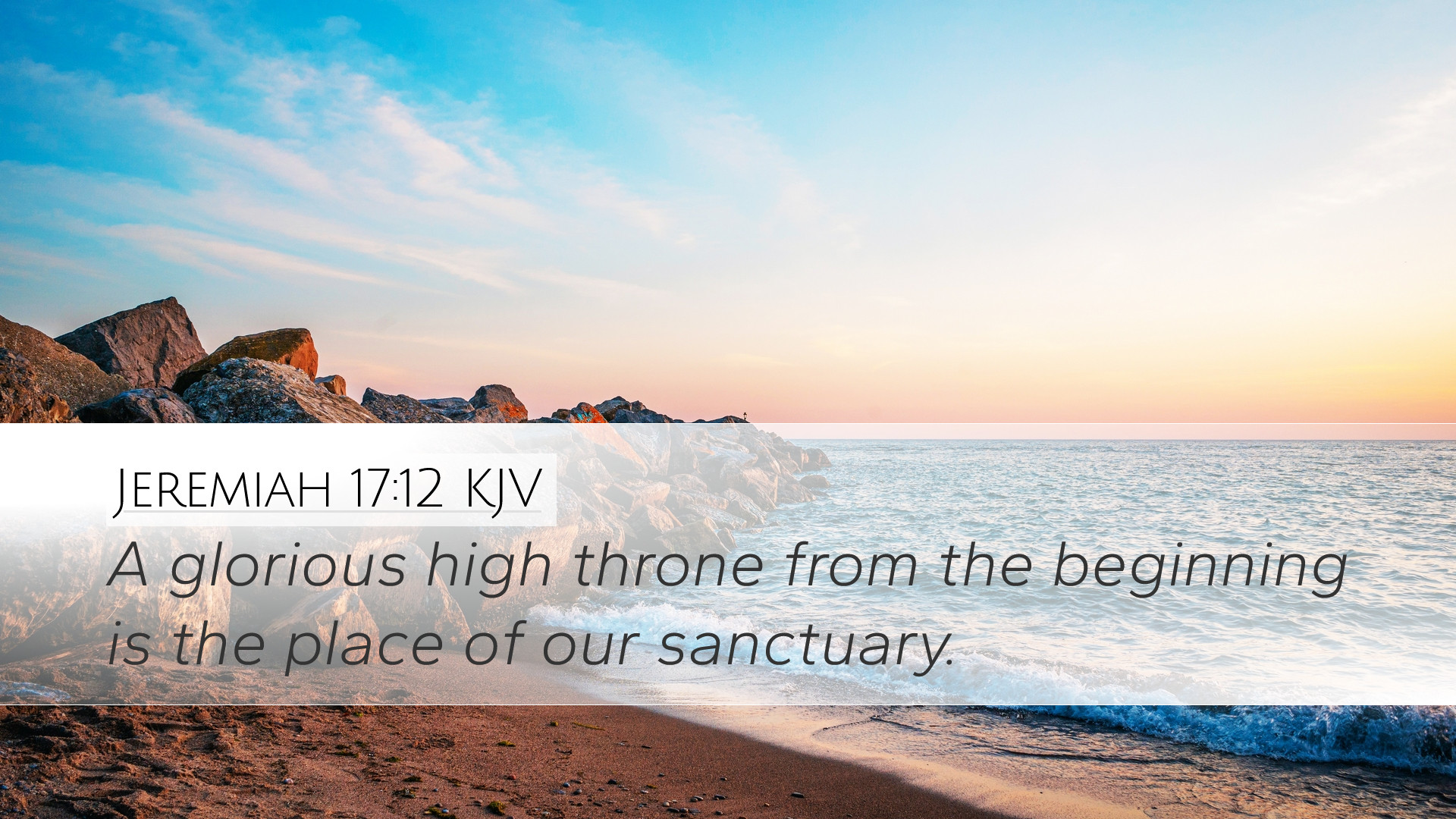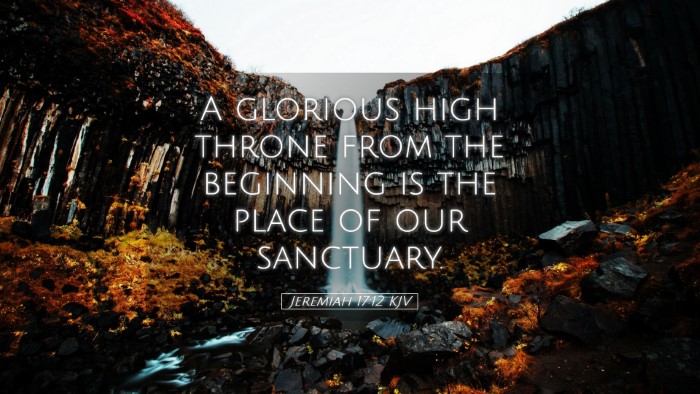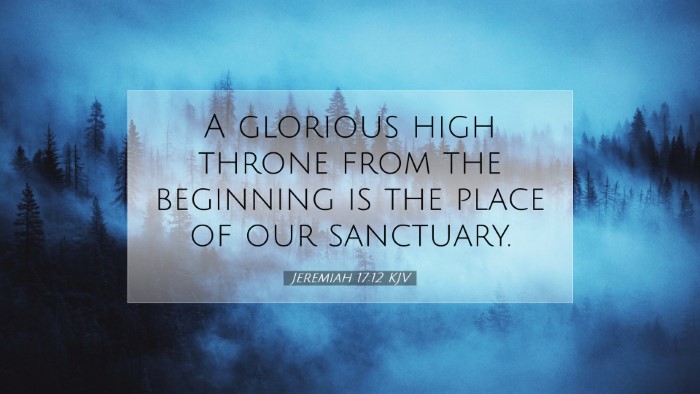Commentary on Jeremiah 17:12
In Jeremiah 17:12, the prophet presents a striking image of hope amid the dire circumstances of Judah. The verse states:
"A glorious high throne from the beginning is the place of our sanctuary."
This verse invites deep contemplation and reflection, drawing the attention of scholars, theologians, and pastors alike.
Contextual Analysis
Understanding the context of Jeremiah is crucial for grasping the significance of this verse. Jeremiah, known as the 'weeping prophet', delivered messages during a tumultuous period in Judah's history, characterized by moral decay and impending judgment. The people had turned away from God, indulging in idolatry and forsaking their covenant with the Lord. In this setting, Jeremiah's message was both a warning and a call to repentance.
The Glorious High Throne
The phrase "A glorious high throne" symbolizes the sovereignty and majesty of God. Matthew Henry remarks that this throne represents God's lofty and glorious reign, emphasizing that despite the people's unfaithfulness, God remains on His throne, ruling over the universe with authority and power.
Albert Barnes echoes this sentiment, noting that the throne is not only high but glorious, indicative of the divine nature of God's rule. It serves as a reminder to the believers that their sanctuary— a place of refuge and truth— is founded upon God's eternal throne.
The Sanctuary of God's Presence
Jeremiah’s use of the term "sanctuary" further enriches the understanding of this verse. Adam Clarke explicates that the sanctuary is a sacred place, underscoring the importance of God’s presence among His people. This sanctuary is contrasted with the corrupted temples built by the people themselves, underscoring that true sanctuary is found in obedience to God and through His grace.
- Divine Protection: The sanctuary signifies divine protection, a safe haven amidst chaos.
- Call to Holiness: It reflects God’s desire for His people to live in holiness and communion with Him.
- Contrast Between Man-Made and Divine Places: The juxtaposition of the sanctuary against the Israelite temples emphasizes human pride versus divine majesty.
The Implications for Humanity
This verse, while rooted in the historical context of Judah, has profound implications for believers today. It reminds us of the eternal nature of God's throne, providing a source of hope and stability even amidst personal and societal turmoil.
Matthew Henry suggests that believers should find comfort in knowing that God’s throne is secure and unchanging regardless of the challenges faced. In an era where values shift and foundations seem fragile, the assurance of God's sovereignty provides a solid ground for faith and trust.
The Call to Faithfulness
Furthermore, this verse serves as a call to faithfulness. It encourages believers to look to God as their ultimate sanctuary, to seek refuge in His presence and to uphold His commandments. Adam Clarke emphasizes that acknowledging God's sovereign reign is pivotal for any believer; it shapes our conduct and strengthens our resolve to live righteously.
Theological Reflection
From a theological perspective, Jeremiah 17:12 draws believers into reflection on the attributes of God—His sovereignty, holiness, and mercy. Understanding these attributes through the lens of this verse can shape doctrinal teachings and enhance the spiritual growth of communities.
- God's Sovereignty: His ruling authority over creation and history.
- God's Holiness: The sanctity of His presence in the lives of His people.
- God's Mercy: The invitation for repentance and restoration, providing hope for the wayward soul.
Conclusion
In conclusion, Jeremiah 17:12 encapsulates a powerful message of hope, divine authority, and the call to holiness. It serves not only as a comfort to those afflicted by trials but also as a challenge to seek God earnestly and to cherish the sanctuary He offers. As we navigate the complexities of faith in a contemporary world, let us hold steadfast to the truth that our refuge is found in the glorious high throne of our God.


